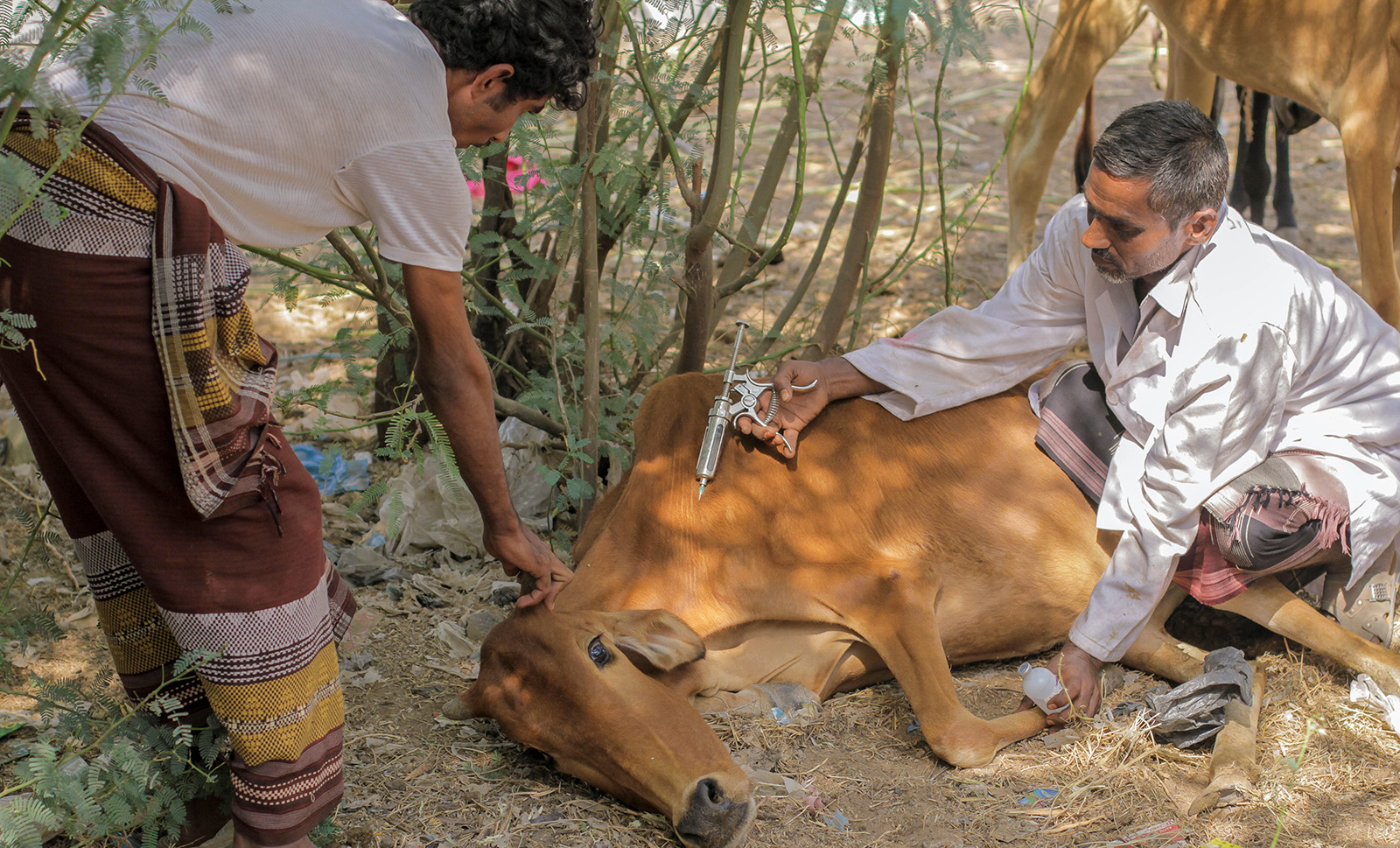.jpg?sfvrsn=76003aae_5)
Yemen's battle: Reshaping agrifood systems amidst climate change and conflict
07/12/2023
Amid Yemen's ongoing humanitarian crisis, where climate change and conflict intersect, FAO is working to take climate action and transform food systems, giving communities hope.
“FAO, in cooperation with various development partners, is working to mitigate the effects of climate change. The aim is to reduce economic losses and loss of life and preserve livelihoods as well as enhance household food security. In line with FAO’s Strategy on Climate Change, we are helping to transform Yemen’s agrifood systems to be more efficient, more inclusive, more resilient and more sustainable”, said FAO Representative in Yemen, Dr. Hussein Gadain
Over the past nine years, Yemen has been locked in a devastating conflict, but the specter of climate change still looms larger than ever, affecting the very fabric of life for its rural communities.
More than 61 percent of Yemen's population resides in rural areas, their livelihoods intricately entwined with the stability of climate conditions. Rates of desertification, drought, and water stress are increasing annually, undermining food production and the availability of arable land.
Following heatwaves that scorch the land, the unpredictable, and heavy rains lead to destructive floods. It is projected that climate change will significantly impact Yemen's gross domestic product growth, decrease household incomes, and increase the number of hungry people.


Left photo: a farmer defending his farm from the invasion of desert locusts - Right photo: FAO supports targeted areas with vaccination campaigns to reduce diseases
Addressing agricultural decline
FAO is promoting the adoption of sustainable and efficient water resource management systems, rehabilitating the water harvesting infrastructure, introducing modern irrigation equipment (including drip irrigation), greenhouses and the planting of perennial trees like almonds and peaches.
Dr. Gadain also described FAO's efforts to encourage the adoption of climate-smart agricultural practices: “Livestock production offers opportunities for financial stability, asset creation, and value storage. We are committed to supporting farmers through vaccination and providing additional assistance to enhance livestock productivity, including supplementary feeding”

After the dairy factory where she worked was bombed, Nawal Abdo, 28, started her own dairy production enterprise. As well as providing jobs for local women, she also gives her two children milk to help them grow up healthy and strong.
Key role of women
Climate change weighs heavily on Yemeni women who account for 60 percent of employment in crop cultivation, 90 percent in livestock, and 10 percent of the wage labour force in Yemen. According to an FAO assessment in 2018, women were responsible for poultry farming and supply work in 65 percent of the households assessed in seven governorates.
FAO promotes home-based farming supporting women farmers, through water harvesting and irrigation systems. FAO is building local seed banks, which contribute to the provision of climate-resistant seeds and the preservation of genetic seed resources for sustainable agriculture.
Zahr Haidar, a mother of six from Khanfar district in Abyan governorate, southern Yemen participated in one of the FAO implemented projects. Through cash for work, they were able to rehabilitate water canals. These canals had been damaged by floods which have become more frequent because of climate change.
